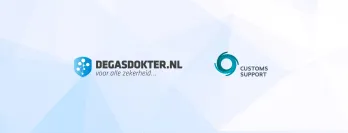
News
Customs Support Advises Fiscal Representation for Companies Importing from the UK
When British companies import goods into the Netherlands to sell them to their customers in the Netherlands they have to pay Value Added Tax (VAT). They can redeem VAT from the British Tax Authority, but that can take time. And with cash flow, time is money.

The Suez Canal Blockade and the Effect on Your Supply Chain
March 23rd was a day everybody in supply chain and logistics will remember for a long time. The Ever Given, a 400-meter long container ship, ran aground in the Suez Canal. The Ever Given is a Gold-class container ship with a capacity of 20,000 containers. What caused the vessel to run aground is still under investigation, but the heavy winds were a factor for sure.

Musketier Moves Office and Rebrands to Customs Support
Musketier has been part of Customs Support since October of 2020. As of April, it will also carry our name: Customs Support. They will also move offices and will occupy an entire floor of the Customs Support office in Duiven, across the street from the original Musketier office.

Customs Support broadens Safety and Degassing services with acquisition of GOC Rotterdam
Customs Support, the independent and dynamic partner for customs and gas safety matters in Europe, announces the acquisitions of GOC Rotterdam. Custom Support’s ambition is to be the leading digital customs broker in Europe with strong ancillary services. This acquisition will strengthen our safety and gas analysis services in The Netherlands.

The Importance of Measuring Gas in Shipping Containers
90 Percent of the world’s cargo is transported by shipping container. The number of containers keeps increasing. In 2019 the total throughput was 800 million TEU. TEU stands for Twenty-foot Equivalent Unit, the length of a standard shipping container. COVID caused a small dip in the increase for 2020, but the forecast for 2021 is 827 million and the total throughput is forecasted to rise to 924 million in 2024.














